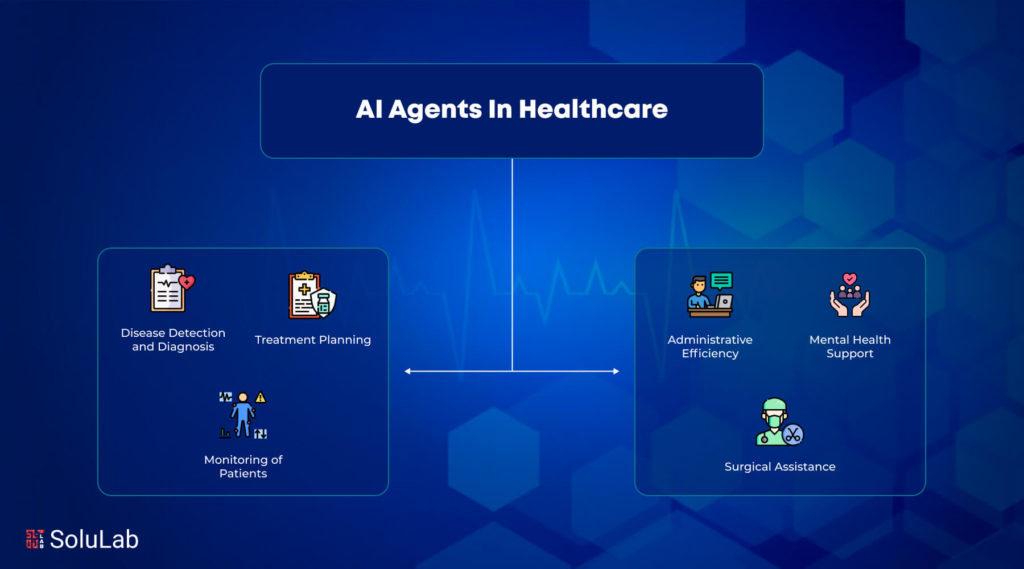Exactly How Insurance Works for Elders: Key Insights Into Medicare and Insurance Coverage Options
Comprehending insurance for senior citizens, especially Medicare, is vital for reliable healthcare administration. Medicare offers important coverage, yet its complexities can be overwhelming. Seniors need to browse numerous components, such as Parts A, B, and D, along with choices like Medicare Advantage and Medigap plans. Each selection impacts their monetary duties and access to solutions. Unpacking these elements reveals considerable understandings that can influence their healthcare decisions. What are the crucial facets elders should consider?
Recognizing Medicare: An Introduction

Medicare Parts A and B: What They Cover
Medicare Components A and B provide important coverage for senior citizens, attending to both medical facility and clinical solutions. Component A concentrates on health center insurance coverage, covering inpatient remains and certain outpatient solutions. At The Same Time, Component B supplies insurance coverage for a variety of medical solutions, including doctor gos to and precautionary care.
Medical Facility Insurance Coverage Insurance Coverage
How do seniors navigate the intricacies of health center insurance protection? Medicare Component An offers essential hospital insurance, covering inpatient stays, knowledgeable nursing center treatment, hospice services, and some home healthcare. This insurance coverage is vital for elders, as it helps manage the costs linked with hospital stays and recovery.Medicare Part B, on the other hand, matches Component A by covering outpatient solutions, consisting of doctor visits, preventative treatment, and diagnostic examinations. With each other, these two components develop a thorough security net for elders, guaranteeing they have access to necessary treatment. Comprehending the distinctions in between Parts A and B enables senior citizens to make enlightened decisions about their health care demands and economic duties related to health center services.
Medical Services Insurance Coverage
While passing through the intricacies of medical services insurance coverage, senior citizens gain from comprehending the details offerings of Medicare Components A and B. Medicare Component A primarily covers inpatient hospital stays, knowledgeable nursing facility treatment, hospice care, and some home health care services. On the other hand, Medicare Component B focuses on outpatient solutions, including doctor brows through, precautionary care, analysis tests, and resilient medical devices. Furthermore, Part B covers specific mental health solutions and outpatient rehab. With each other, these parts offer a detailed framework for managing health care requirements. Seniors ought to acquaint themselves with the subtleties of these protection options to guarantee they optimize their advantages and lessen out-of-pocket costs, ultimately improving their accessibility to necessary medical services.
Medicare Advantage Strategies: An Alternate Technique
An expanding number of senior citizens are discovering Medicare Advantage Program as a viable option to typical Medicare. These strategies, also called Medicare Component C, are provided by exclusive insurance companies and include all advantages of Medicare Parts A and B, usually consisting of extra services such as vision, dental, and health care. Numerous seniors value the streamlined technique, as these plans typically provide a single policy that covers various health care needs.Medicare Advantage Strategies can present a cost-efficient option, with some plans also including low or no month-to-month premiums. It is crucial for elders to evaluate the network of medical professionals and medical facilities connected with each plan, as well as any extra out-of-pocket expenditures that may occur. Ultimately, picking a Medicare Advantage Plan calls for careful factor to consider of private wellness needs and financial conditions, making sure senior citizens choose the option that ideal fits their way of life and health care requirements.
Prescription Medicine Coverage: Medicare Component D
Medicare Component D provides necessary prescription medicine coverage for elders, aiding to take care of the expenses of necessary drugs. Recognizing the enrollment period is essential for recipients to optimize their advantages and avoid charges. In addition, expense considerations play a considerable role in selecting the best strategy to suit specific health requirements and financial scenarios.
Protection Fundamentals Explained
Prescription drug insurance coverage is a necessary component of healthcare for elders, ensuring access to needed medicines. Medicare Part D provides a variety of plans created to aid cover prescription medication costs. These plans are given by exclusive insurance policy business approved by Medicare and can vary widely relative to costs, deductibles, and covered medicines. Recipients usually pay a regular monthly costs, in addition to copayments or coinsurance for each prescription. It is very important for senior citizens to evaluate their options every year, as formularies and expenses may transform. Some individuals may also receive Additional Aid, a program that helps with out-of-pocket prices. Inevitably, recognizing these basics enables elders to make educated decisions regarding their prescription medicine coverage.
Enrollment Duration Information
Comprehending the numerous enrollment periods for Medicare Part D is vital for elders seeking to secure their prescription medicine protection. The Preliminary Registration Period (IEP) lasts 7 months, starting three months before an individual turns 65 and ending three months after. Throughout this time around, seniors can enroll in a Part D strategy without penalty. The Yearly Enrollment Period (AEP) ranges from October 15 to December 7 yearly, allowing recipients to make changes to their existing plans or enroll in a new one. In addition, seniors might get a Special Registration Period (SEP) as a result of details scenarios, such as moving or losing other insurance coverage. Recognition of these timeframes is vital for making certain sufficient prescription medicine insurance coverage.
Price Considerations Review
While steering through the complexities of health care costs, elders must take into consideration the financial aspects of Medicare Part D, which supplies crucial prescription medicine protection. This program involves different expenses, consisting of month-to-month premiums, yearly deductibles, and copayments for medications. Premiums can vary significantly based upon the selected strategy and earnings degree. In addition, recipients might run into an insurance coverage gap, often referred to as the "donut opening," where out-of-pocket costs raise up until reaching a certain investing limit. Recognizing these price frameworks is essential for seniors to efficiently manage their healthcare spending plans. It is advisable for senior citizens to assess their prescription requires every year, as medicines and plan choices may transform, affecting general expenditures and protection adequacy.
Medigap Plans: Supplementing Your Medicare Protection

Medicaid: Additional Support for Low-Income Seniors
For senior citizens encountering financial obstacles, Medicaid serves as a necessary safeguard, supplying crucial health care insurance coverage and support. This program, carried out jointly by government and state federal governments, particularly targets low-income people, including the senior. Medicaid covers a broad array of services, such as health center remains, physician check outs, long-lasting care, and home wellness solutions, which are fundamental for keeping wellness and well-being. Eligibility for Medicaid differs by state, usually based upon revenue, properties, and details clinical demands. Lots of elders may receive both Medicare and Medicaid, known as dual eligibility, which can assist cover expenses that Medicare additional resources does not, such as deductibles and copayments. Furthermore, Medicaid might supply assistance with prescription medicine prices through programs designed for low-income recipients. Overall, Medicaid plays a considerable role in guaranteeing that low-income seniors have access to needed health care solutions, advertising far better health end results and lifestyle.
Browsing the Registration Refine: Key Timelines and Tips
How can seniors effectively browse the complex enrollment process for health care insurance policy? Comprehending crucial timelines is crucial. The initial enrollment period for Medicare starts three months prior to the specific turns 65, prolongs with the month of their birthday celebration, and continues for three months after. Read Full Article During this period, elders can enlist in Medicare Component A and Component B without penalties.Additionally, the yearly open enrollment duration for Medicare Advantage and Component D runs from October 15 to December 7 annually, permitting modifications in coverage. Seniors are suggested to examine their present health requirements and review plan choices throughout this time.To assist in a smooth enrollment experience, making use of resources such as the Medicare internet site or speaking to state wellness insurance policy assistance programs can supply useful advice. Tracking target dates and essential papers will certainly even more guarantee that seniors protect the most ideal coverage for their healthcare needs.
Regularly Asked Concerns

Can I Keep My Present Physician With Medicare Protection?
The concern of keeping a current physician under Medicare insurance coverage commonly depends upon the certain plan chosen. Several Medicare Benefit plans may need using a network of providers, while Original Medicare normally allows more comprehensive access to doctors.
What Takes place if I Miss the Enrollment Period?
If an individual misses out on the enrollment period, they might deal with delayed coverage, greater premiums, or prospective fines. Florida Medicare Agent. This scenario can bring about spaces in healthcare accessibility, triggering the requirement for cautious preparation and understanding of target dates
Are Dental and Vision Services Covered by Medicare?
Dental and vision services are typically not covered by Medicare. Some Medicare Benefit strategies may supply these advantages. Senior citizens must discover their choices to identify if extra protection is offered for these necessary solutions.
Exactly how Do I File an Issue About My Medicare Plan?
To submit a problem regarding a Medicare plan, one ought to contact Medicare straight at 1-800-MEDICARE or see their site. Reporting problems helps enhance services and assurances that problems are addressed without delay.
Can I Modification My Medicare Plan After Registration?
Altering a Medicare plan after enrollment is possible throughout designated durations, such as the Yearly Registration Period or Special Registration Periods (Healthcare Companies). People ought to examine their alternatives meticulously to Senior Insurance Agent assure they pick the most effective protection for their demands
Verdict
In summary, understanding the complexities of Medicare and its different elements is essential for seniors seeking to maximize their healthcare coverage. By checking out Medicare Parts A and B, Advantage Plans, Component D for prescriptions, and Medigap plans, senior citizens can make enlightened decisions that lessen out-of-pocket costs. Additionally, awareness of Medicaid options gives further assistance for low-income people. Leading the enrollment process with vital timelines guarantees that seniors can access the important solutions they need for their well-being. The program is separated right into Initial Medicare and Medicare Advantage, each offering special advantages and insurance coverage choices. While traversing the complexities of medical services coverage, senior citizens profit from recognizing the specific offerings of Medicare Components A and B. Medicare Component A largely covers inpatient health center remains, experienced nursing center treatment, hospice treatment, and some home health and wellness treatment services. A growing number of seniors are exploring Medicare Benefit Program as a feasible option to typical Medicare. Many senior citizens may qualify for both Medicare and Medicaid, known as dual qualification, which can assist cover expenses that Medicare does not, such as deductibles and copayments. Throughout this duration, seniors can register in Medicare Part A and Component B without penalties.Additionally, the annual open registration duration for Medicare Benefit and Component D runs from October 15 to December 7 each year, permitting changes in coverage.